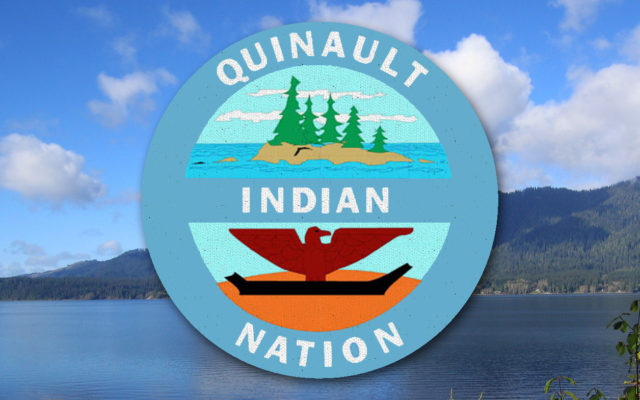Case against QIN dismissed; Nation claims reaffirmed ownership of Lake Quinault following

In a release from the Quinault Indian Nation, a decision by the United States Court of Federal Claims has upheld that the Quinault Indian Nation owns Lake Quinault.
In a release from QIN, they announced that a decision was made by the judge to dismiss a lawsuit that sought to revoke the ownership of Lake Quinault from the nation.
Quinault Nation President Fawn Sharp stated, “This latest court decision once again affirms our ownership of Lake Quinault as part of the 1856 Treaty of Olympia established the Quinault Nation as a federally-recognized sovereign Indian tribe, and builds on decades of progress asserting the Nation’s exclusive and sovereign right to manage natural resources on our reservation,”
The case, Landreth v. United States, was issued by Hoquiam resident Thomas Landreth, a land owner along the lake, who states that Lake Quinault is a navigable waterway and therefore should be open to the public.
The release stated that this lawsuit, and others, have originated from various property owners at the lake’s edge who challenged decisions made by the nation.
In the past, the Quinault Indian Nation has stated that they have sovereignty over the lake itself, and have closed fishing and access to non-tribal members.
Landreth states that despite the claims of jurisdiction, the QIN do not maintain control over the lake and asked the court to determine the status of property rights of land-owners and the public to lake and land access.
In a document from July 24 Judge Patricia E. Campbell-Smith concluded at the time that the court lacked the jurisdiction to consider the plaintiff’s complaint.
In 2017 the QIN stated that the Washington State Court of Appeals rejected a claim that Lake Quinault is owned by the State and the Nation had no stake in the lawsuit.
QIN states, “The Court saw no merit in those arguments, noting “It is uncontested that the Nation claims an interest in the subject of this action: Lake Quinault. “
Landreth, in the recent case, alleged that the Quinault Indian Tribe committed eight “Causes of Action” against him, including;
- deprivation of property rights as a result of various “trespassory” actions taken by the Tribe
- conversion by the Tribe “committed through its actions in remeandering the lake,” and “continually and unlawfully restrict[ing] and prevent[ing] Plaintiff from the use and enjoyment of the Lake,”
- tortious interference by the Tribe with plaintiff’s property by “denying and restricting lawful access to Lake Quinault,”
- private nuisance committed by the Tribe “related to the denial and restriction of the use and enjoyment by Plaintiff of Lake Quinault,”
- “violation of the constitution,” referencing the Tribe’s “wrongful actions” that denied plaintiff “the full enjoyment of land, liberty and property without due process of law,”
- the Tribe’s violation of Washington state law “through its willful and deliberate obstruction and denial of Plaintiff[’s] property rights to the Lake,”
- “violations of treaties with foreign nations,”
- a request for permanent injunctions against Washington State and the Quinault Indian Tribe to protect plaintiff’s enjoyment of Lake Quinault
Landreth asked for declaratory and injunctive relief, as well as “monetary damages related to the loss of use of legally obtained real property and the trespass by the Quinault Indian Tribe/Nation”.
The QIN says that conflict between the owners and the nation has emerged following actions they say are being done “to protect the lake”, including invasive species prevention from zebra and quagga mussels and knotweed, which have forced closures of the lake to certain areas and groups.
Closures have also come to the fishing, as QIN ended the commercial Blueback fishery for 2019 for the second consecutive year for conservation purposes to restore the species.
In the federal finding, it states that the complaint is being dismissed due to a number of reasons establishing the jurisdiction of the United States Court of Federal Claims.
KXRO was told that the case is being appealed.
The QIN said in their release that they will continue to place safeguards on water access, including closing access of 23 miles of shoreline and beaches to non-tribal individuals.



